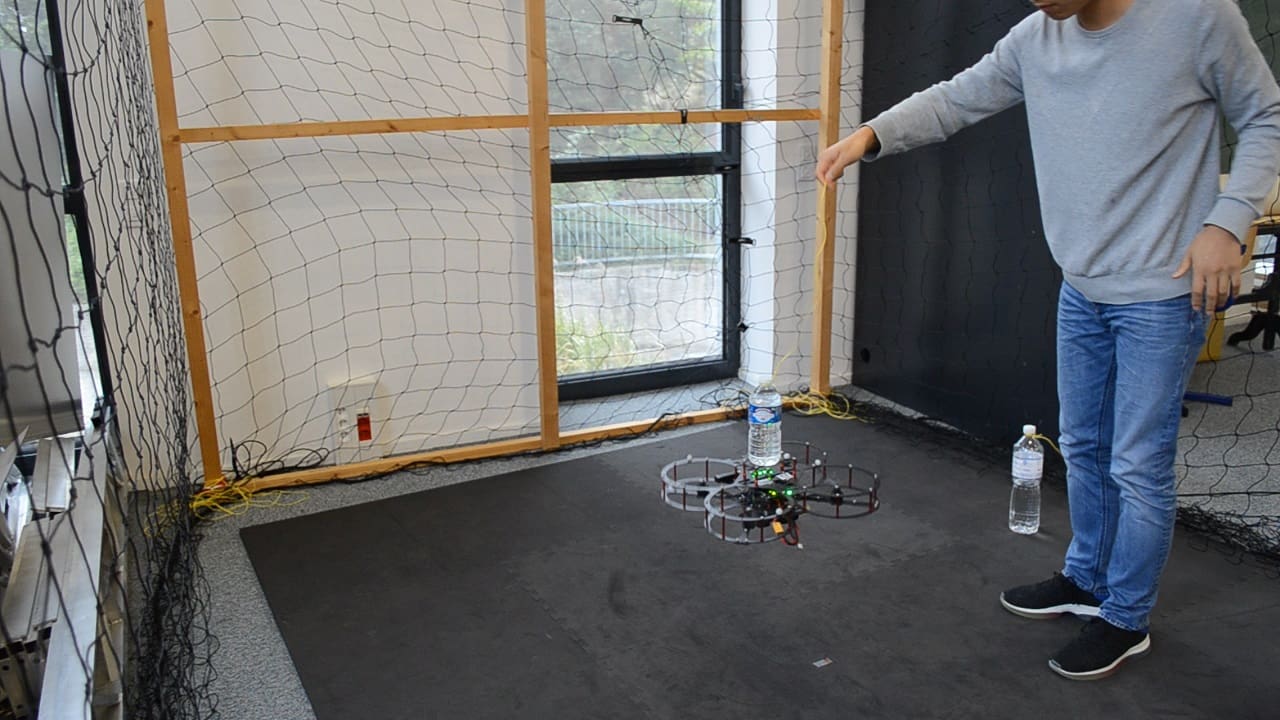
Webinar Details
Linear PID controllers are the most popular solutions in control engineering. They are shown to be efficient in the majority of industrial applications such as process control, robotics, unmanned (flying, underwater, and terrestrial) vehicles, etc. The linear control theory is well developed in both time and frequency domains, so further improvement of control performance using the same linear strategy seems impossible.
Join us for the webinar presentation Upgrading Linear PID Controllers: Method of Generalized Homogenization, in which Dr. Andrey Polyakov, Researcher at INRIA, France will introduce a nonlinear approach to upgrading linear PID controllers. His approach is based on the so-called generalized homogeneity – a dilation symmetry, which is discovered in many mathematical models of real physical systems. The proposed design procedure guarantees that the performance of the nonlinear homogeneous controller can never be worse than the performance of the existing linear algorithm. The theoretical results are supported by experiments with the Quanser QUBE Servo 2 rotary inverted pendulum module and the Quanser QDrone quadrotor.
 Dr. Andrey Polyakov is a Researcher at Valse team at the National Institute for Research in Computer Science and Automation (INRIA) in Lille, France, and a member of the Control and Scientific Computing (CO2) group at the University of Lille.
He received his Master's degree in Applied Mathematics and Computer Sciences and a Ph.D. degree in Physical and Mathematical Sciences at Voronezh State University, Russia, and obtained habilitation from the University of Lille. Prior to joining INRIA, Dr. Polyakov was a Post Doctoral fellow at CINVESTAV-IPN Mexico, held the Associate Professor position at Voronezh State University, and was a Lead Researcher at the Institute of Control Sciences, Russia.
Dr. Polyakov's research interests include generalized homogeneity in systems and control, non-asymptotic control and estimation, robust and non-linear control, set-theoretic methods in robust control, Lyapunov methods in control and estimation, and active control of turbulent flows. He is a receiver of the Russian Academy of Sciences' Letov Prize (2011), and an Outstanding reviewer of Automatica prize in 2017. He is a member of the editorial board of the Automation and Remote Control Journal, and author and co-author of more than 270 papers and articles, and 2 patents.
Dr. Andrey Polyakov is a Researcher at Valse team at the National Institute for Research in Computer Science and Automation (INRIA) in Lille, France, and a member of the Control and Scientific Computing (CO2) group at the University of Lille.
He received his Master's degree in Applied Mathematics and Computer Sciences and a Ph.D. degree in Physical and Mathematical Sciences at Voronezh State University, Russia, and obtained habilitation from the University of Lille. Prior to joining INRIA, Dr. Polyakov was a Post Doctoral fellow at CINVESTAV-IPN Mexico, held the Associate Professor position at Voronezh State University, and was a Lead Researcher at the Institute of Control Sciences, Russia.
Dr. Polyakov's research interests include generalized homogeneity in systems and control, non-asymptotic control and estimation, robust and non-linear control, set-theoretic methods in robust control, Lyapunov methods in control and estimation, and active control of turbulent flows. He is a receiver of the Russian Academy of Sciences' Letov Prize (2011), and an Outstanding reviewer of Automatica prize in 2017. He is a member of the editorial board of the Automation and Remote Control Journal, and author and co-author of more than 270 papers and articles, and 2 patents.
 Dr. Andrey Polyakov is a Researcher at Valse team at the National Institute for Research in Computer Science and Automation (INRIA) in Lille, France, and a member of the Control and Scientific Computing (CO2) group at the University of Lille.
He received his Master's degree in Applied Mathematics and Computer Sciences and a Ph.D. degree in Physical and Mathematical Sciences at Voronezh State University, Russia, and obtained habilitation from the University of Lille. Prior to joining INRIA, Dr. Polyakov was a Post Doctoral fellow at CINVESTAV-IPN Mexico, held the Associate Professor position at Voronezh State University, and was a Lead Researcher at the Institute of Control Sciences, Russia.
Dr. Polyakov's research interests include generalized homogeneity in systems and control, non-asymptotic control and estimation, robust and non-linear control, set-theoretic methods in robust control, Lyapunov methods in control and estimation, and active control of turbulent flows. He is a receiver of the Russian Academy of Sciences' Letov Prize (2011), and an Outstanding reviewer of Automatica prize in 2017. He is a member of the editorial board of the Automation and Remote Control Journal, and author and co-author of more than 270 papers and articles, and 2 patents.
Dr. Andrey Polyakov is a Researcher at Valse team at the National Institute for Research in Computer Science and Automation (INRIA) in Lille, France, and a member of the Control and Scientific Computing (CO2) group at the University of Lille.
He received his Master's degree in Applied Mathematics and Computer Sciences and a Ph.D. degree in Physical and Mathematical Sciences at Voronezh State University, Russia, and obtained habilitation from the University of Lille. Prior to joining INRIA, Dr. Polyakov was a Post Doctoral fellow at CINVESTAV-IPN Mexico, held the Associate Professor position at Voronezh State University, and was a Lead Researcher at the Institute of Control Sciences, Russia.
Dr. Polyakov's research interests include generalized homogeneity in systems and control, non-asymptotic control and estimation, robust and non-linear control, set-theoretic methods in robust control, Lyapunov methods in control and estimation, and active control of turbulent flows. He is a receiver of the Russian Academy of Sciences' Letov Prize (2011), and an Outstanding reviewer of Automatica prize in 2017. He is a member of the editorial board of the Automation and Remote Control Journal, and author and co-author of more than 270 papers and articles, and 2 patents. 

